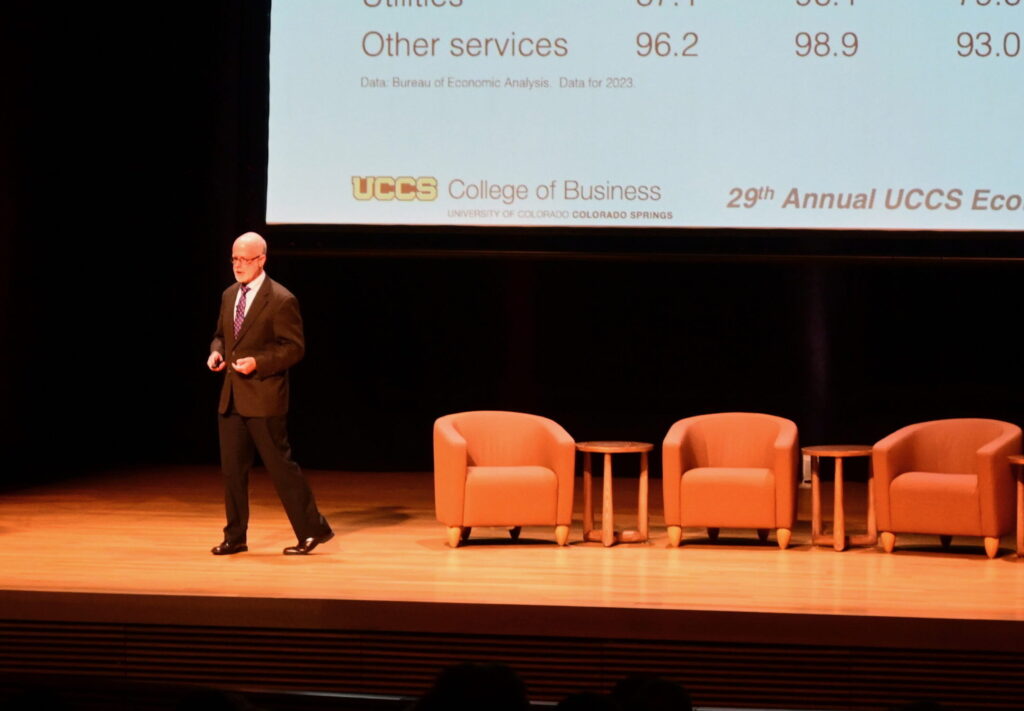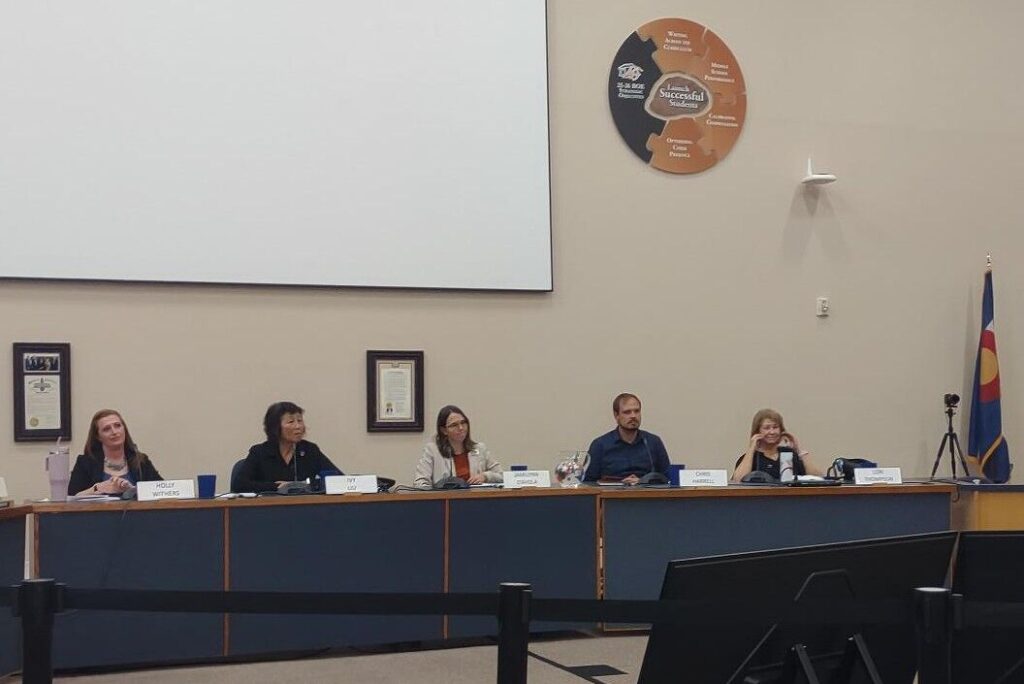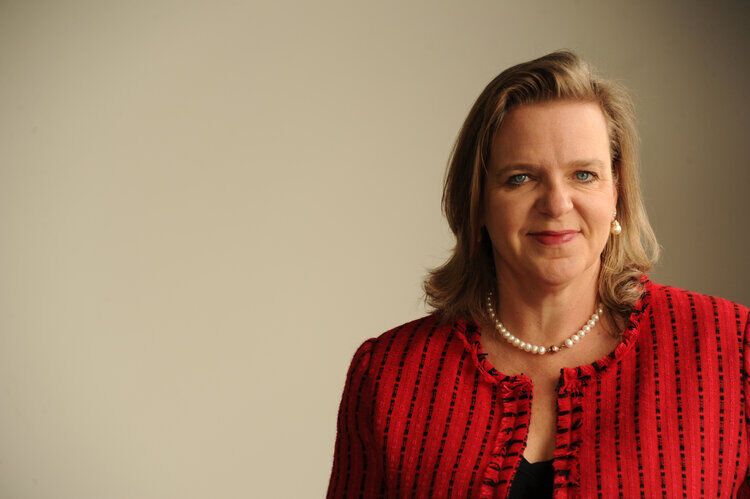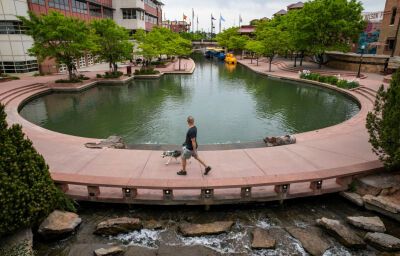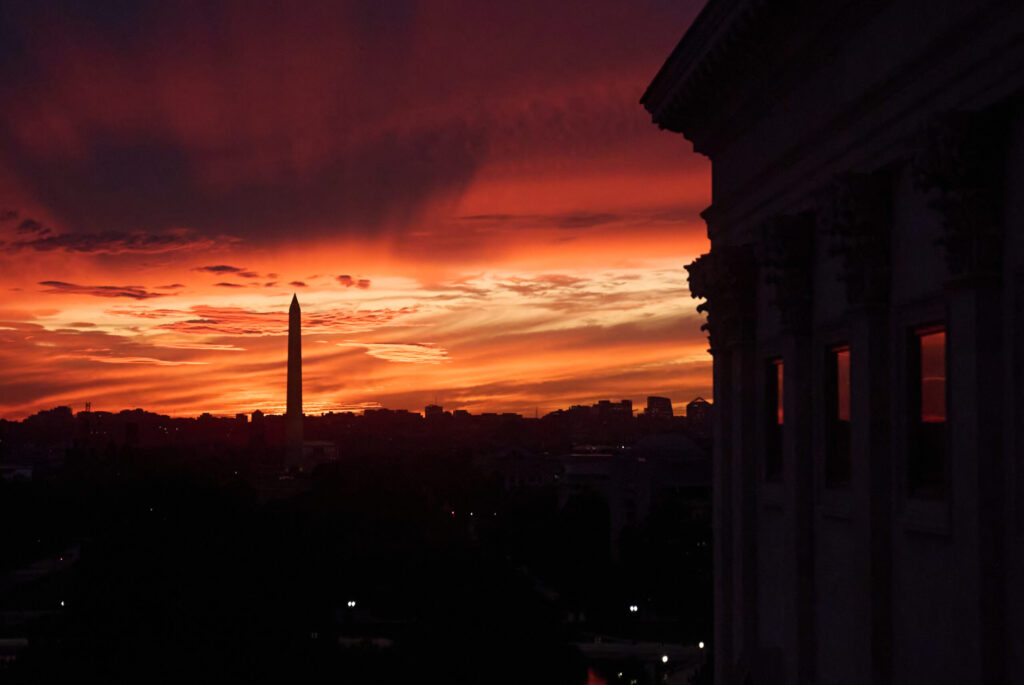Denver’s $1 billion bond proposal: What to know about the big-ticket items
City officials on Monday will hear from the public about the Johnston’s administration’s proposed $935 million bond package, which the mayor argued is necessary spending as Denver faces what he described as a “turning point.”
The mayor wants to use the money to fund roughly 60 projects, ranging from new facilities to parks improvements to housing.
Some residents and councilmembers have criticized the list, disagreeing with both the projects included and the funding allocations. The mayor has defended his proposal, arguing the money would help spur economic growth and “deliver critical infrastructure that accelerates more private investment.”
Assuming the council sends the roughly $1 billion borrowing plan to the ballot, voters will get their opportunity to vote on the measure this fall.
Denver Mayor Mike Johnston holds a mixed record when it comes to pushing spending and borrowing measures at the ballot box. Last year, voters approved a sales tax hike, estimated to generate $70 million annually, to support Denver Health. They also said yes to a measure authorizing $570 million in city bonds, with a total repayment cost of up to $847 million, which the Denver Downtown Development Authority will use to finance public facilities and improvements, including public spaces, infrastructure, and other developments.
Voters, however, rejected the mayor’s proposal to also raise the sales tax to generate $100 million for housing projects.
The list for the mayor’s $1 billion bond proposal, as it stands now, consists of 59 projects, categorized into five distinct groups.
As envisioned by the city, nearly half of the bond funding (46%) will go to transportation and mobility projects, including streets, bridges, and improvements to traffic and pedestrian safety.
About 25% of the funds will be allocated toward improvements at city facilities, including libraries, community centers, the animal shelter, and other locations. Additionally, capital maintenance support will be provided for popular places, such as the Red Rocks, the Botanic Gardens, Denver Zoo Conservation Alliance and the Denver Art Museum.
Improving and expanding parks and recreation infrastructure accounts for approximately 19% of the bond and 7% for ADA improvements to housing and shelter facilities and adding new affordable housing.
Another 3% will expand a family health clinic and build a children’s center.
Earlier this month, an executive committee hand-picked by Johnston released its recommended list of infrastructure projects.
In light of the upcoming public hearing on Monday, The Denver Gazette took a closer look at the revised project list, highlighting the items with the largest price tags.
For the bond initiative to appear on the Nov. 4 ballot, the council must approve its language and legislative details by August 25, unless the city enacts a waiver.
Denver voters can authorize general obligation bonds every four to 10 years, which are repaid through property taxes. Denver’s current bond programs are nearly complete, creating “capacity” for new projects, officials said.
To explore an interactive map of all bond projects, visit this link.
Council District 3
- 8th Avenue Viaduct Replacement: $89.2 million
Council Districts 3, 7
- 6th Avenue Viaduct Repairs: $50 million
Among the most talked-about projects are two line items for repairs and improvements to the 6th and 8th avenue viaducts, which carry a combined price tag of $140 million.
While repairs are needed for the aging structures, critics have argued that parts of the projects smell like a backdoor “carrot” for the Broncos.
“Can you all honestly tell me that this has not come up in the conversations about why those two chunks of road got elevated over (projects) like 13th and 14th?” At-large Councilmember Sarah Parady asked city finance officials at a council committee last Tuesday.
The investment will “preserve the ability” for the 8th Avenue to be an “important east-west connection within our transportation network,” the Johnston administration in its list explaining the projects. The project would leave the western portion of the viaduct, from approximately Vallejo Street to west of Seminole Road, and remove the eastern portion, from west of Seminole to Mariposa Street. It would reconstruct the east portion as an at-grade roadway.
Meanwhile, the 6th Avenue viaduct is a critical east-west connection that supports the regional movement of people and goods, the city said. The bridge has significant pier deterioration, lacks redundancy in load capacity, and poses an increased risk of failure. Money from the bond funding would complete repairs and finalize the pre-design for the future replacement of the bridge, the city added.
Council District 9
- Globeville Elyria-Swansea Marion Underpass: $75 million
This project would complete the final connection through the National Western Center (NWC) campus, linking Globeville to Elyria and Swansea (GES) through an extension of Bettie Cram Drive east to Brighton Boulevard.
Along with direct access to the RTD N Line station, the project would also establish the infrastructure for affordable housing on the NWC Triangle, construction of the Marion Underpass and a new crossing under three rail lines, as well as include construction of groundwater mitigation systems.
Voter-approved 2C funds are restricted funds specifically identified for projects at the convention center and the National Western Complex.
However, earlier this year, the Denver City Council voted to gradually release $800 million over 35 years to provide financial support for the National Western Equestrian Center project.
Council District 8
- Park Hill Park Buildout: $70 million
The Johnston administration wants to allocate $70 million for developing the Park Hill Golf Course into a regional park.
In January, the city cut a land-swap deal on the 155-acre parcel with Andy Klein, founder and managing principal of developer Westside Investments, to preserve the land as a park.
The city will pay Westside Investments using 2A voter-approved dollars from the Denver Parks Legacy Fund.
Denver Parks and Recreation Executive Director Jolon Clark said that no projects scheduled to be supported by the Legacy Fund would be deferred due to the land swap agreement.
Instead bond funding would pay for improvements, including the establishment of basic park infrastructure, such as irrigation, landscape, walks, parking lots, and of park amenities like a playground, sports fields and courts, water play, picnic areas and a dog park. As envisioned, the remaining unimproved portion of the site would remain an open space with walking path access.
Residents remain divided about the future buildout, with some welcoming a large community park and “an environmental win.” Others argued the property could have been used for housing, one of the Johnston administration’s top priorities, generating tax revenue, instead of becoming another area of spending.
The land swap is expected to be finalized sometime this fall, following the city’s due diligence obligations.
Council District 1
- West 38th Avenue Multimodal Project: $55.3 million
This initiative seeks to improve the safety, accessibility and efficiency of traffic along West 38th Avenue between Sheridan Boulevard and Fox Street.
City officials also pointed to this project’s emphasis of pedestrian, cyclist and transit traffic.
The proposed improvements include widening sidewalks where feasible, constructing pedestrian crossing refinements, adding landscaping and green infrastructure, improving traffic and bus operations and safety through signal improvements, and bus stops.
A recent city-sponsored road safety audit, completed in March 2024, identified the stretch of road as a high-crash area.
Regional projects
- First Responder Safety Training Center: $75 million
According to city documents, this project aims to consolidate existing training facilities for the Denver Sheriff, Denver Fire, and Denver Police departments into a single facility.
The benefits cited by the city include improved training efficiency for new recruits, the ability to host additional recruit classes, and expanding the number of trained public safety personnel.
This will also bring training resources up to standard, enabling the city to remain regionally competitive.
- Affordable Housing Project Development: $50 million
Originally proposed as part of Johnston’s recently announced “middle-income” housing program, which seeks to construct additional units for individuals with annual incomes between $60,000 and $100,000, the project’s scope changed with the release of the revised “Vibrant Denver Bond” project list.
“We wanted to be able to have a little bit more flexibility in the type of housing,” Johnston administration Deputy Chief of Staff Evan Dryer said. “‘Middle income felt a little bit too restrictive for this amount of money.”
Bond money for this project would support the acquisition, development, design and construction of affordable housing, according to city documents. Funding from the proposed bond would only account for a portion of the total capital cost; the remaining funding would be identified by partner organizations.


